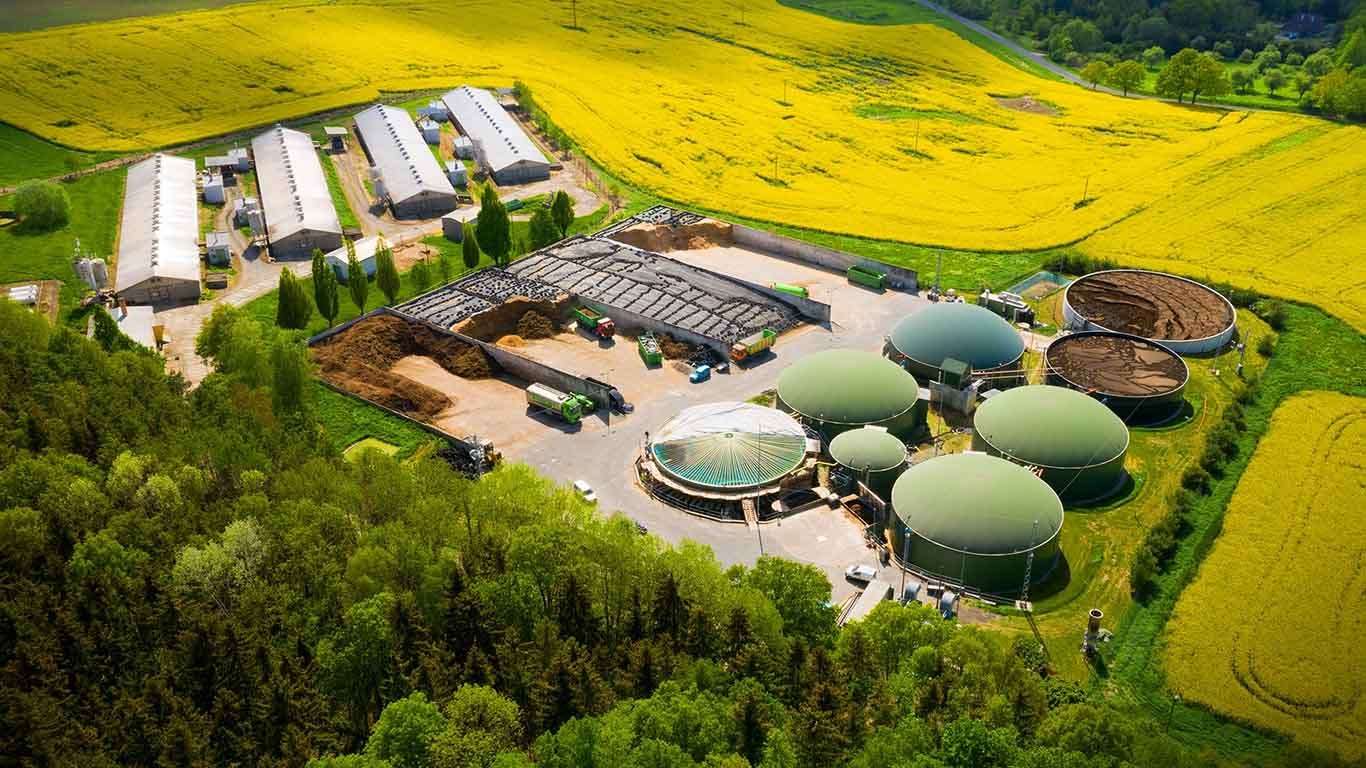Biofuels and Low-Carbon Feedstocks
Lower carbon pathways to a more climate-friendly future.
Stay Ahead in Biofuels
Access the most comprehensive insights in the biofuel industry—from feedstock origination to finished fuel.
Stay Ahead in Biofuels
Get expert analysis on supply and demand dynamics, global and domestic policy impacts, and emerging opportunities for monetization.
The Clean Energy Transition
The pressure on companies from legislation and consumers to lower their carbon emissions will continue to grow rapidly between now and 2030. Net zero is now the goal of more and more major companies.
At the same time, carbon offsets are being called into question as to whether they are an effective source of emissions reduction.
Choose Biofuels Not Carbon Credits
Instead of buying change with carbon credits or tickets, companies are increasingly making change by transitioning to low-carbon transport fuels, decarbonizing logistics and mitigating supply chain emissions.
Daily Low Carbon Markets
Biofuels
Feedstocks
Tickets
Weekly Analytics
Green Diesel Europe
International Ethanol
Green Diesel North America
Green Diesel South America
International Vegetable Oils
Prima Carbon Mitigator
Market Analytics
North American Certificates
Global Plants Database
Global Trade Fundamentals
Global Biofuel Mandates
Who We Support
We develop and refine our services to support a wide range of businesses.
Feedstock producers
Renewable fuel producers
Fuel and agricultural traders
Manufacturers
Financials and bankers

Price Benchmarks We Track
We publish price benchmarks for a range of commodities as new biofuels emerge.
UCOME & UCO (US, Europe, Asia)POME
Tallow
Yellow Grease
White Grease
Corn Oil
Vegetable Oils
Biomethanol
Green Ammonia
4 Types of Sustainable Aviation Fuels

Other Areas of Coverage
Carbon Mitigator report
Global Biofuels mandates
European obligated party tickets
LCFS prices
RIN Counts
Biodiesel and HVO plants and capacity

We Offer Strategic Decarbonization Consulting
We offer custom consulting services on all aspects of the low-carbon renewable fuels industry, including government mandates, forecasting, feedstock feasibility studies, the HVO and renewable diesel market, and pathways to decarbonization and carbon mitigation.
- Supply and demand of renewable diesel
- European and US fuel compliance tickets
- Worldwide clean fuel programs
- How to invest in transport decarbonization
- How to move up the value chain in low carbon
- Feedstock research projects
- Advisory for renewable diesel feedstocks, sustainability, and ESG
- Sustainability and EST in the transport sector
- Supply and demand analytics
- Logistics decarbonization calculations for ESG purposes
FAQ's
-
What is a low carbon economy?
A low-carbon economy is the conversion to an economy based on low-carbon energy sources that have reduced greenhouse gas emissions (CGH). CHG emissions trap heat in the atmosphere and are a large contributor to global warming, so reducing these emissions is a major factor in increasing the world's overall climate resilience.
Companies in countries around the world are making to transition towards using renewable energy sources, like biofuels, that reduce carbon emissions and help meet carbon reduction goals. Investments in these strategies offer many benefits, including job creation, business competitiveness, and improved trade policies.
-
Why is decarbonization important?
Since the industrial revolution, carbon dioxide levels (along with several other greenhouse gases) have accumulated in our atmosphere and caused an increase in the rate of global warming. The results of global warming are causing negative impacts on the environment, including rising sea levels, changing precipitation patterns, increased risk of droughts and floods, and threats to biodiversity, among many others.
Decarbonization strategies are vital to mitigate the process of climate change. To make decarbonization a reality, many governments have implemented carbon reduction mandates. This means that companies across all industries must create a comprehensive plan to measure emissions output, identify opportunities to reduce carbon emissions, and invest in new technologies to enable these strategies. Meeting carbon reduction goals will require companies across all industries to switch to lower carbon-emitting, sustainable fuels to support one another in the race to decarbonize.
-
What is a net zero company?
A net zero company aims to achieve a balance between carbon emissions and absorption across its supply chain by utilizing renewable energy sources and finding ways to re-absorb remaining emissions.
There are many benefits to achieving net zero, including saving money on energy costs, meeting environmental regulations, improving the company's reputation, and creating a more sustainable future.
-
What is biofuel?
Biofuels are fuels that are created from renewable sources, like plant or algae material or animal waste products. They are a renewable source of fuel and a sustainable alternative to fossil fuels, while also producing less carbon emissions.
Biofuels have been implemented in several industries, and have many uses including transportation, heating, and electricity. Two of the most common types of biofuels are bioethanol and biodiesel. However, as the demand for renewable fuels increases, new forms of biofuel are found. Because of this, staying up to date on the most current forms of sustainable fuel is a vital part of an effective carbon reduction strategy.
-
Are biofuels renewable?
Yes, biofuels are renewable. They are made from organic material that can be grown and harvested on a regular basis, making them a sustainable alternative to fossil fuels, which are non-renewable.
Biofuels can be made from a variety of renewable sources, including plants, water, animal waste, and other waste products. They also produce fewer carbon emissions, so implementing their use can help companies meet their sustainability goals.
-
What are renewable fuels?
Renewable fuels are fuels like biodiesel, ethanol, and hydrogen that are produced from renewable sources, such as corn, sugarcane, water, vegetable oil, and animal fats, among others.
As companies throughout the world move towards implementing carbon reduction strategies, renewable fuels are likely to play an increasingly important role in their energy mix. There are several advantages for companies who switch to using renewable fuels, including energy efficiency, a reduction in dependency on fossil fuels, a reduction in environmental pollution, a reduction in greenhouse gas emissions, and overall sustainability.
Explore Our Latest Market Insights and Analysis
Bio-Bunkering in 2026: Policy Uncertainty Rising as Market Moves
Jan 14, 2026
2026 Biofuels Industry Predictions: Annual Outlook
Jan 9, 2026

Who is Prima Markets?
Prima Markets, a ResourceWise company, focuses on the relationship between biofuels, energy, and agricultural markets in its unique BI platform. The data is widely used in trade and investment decisions for low-carbon fuel and feedstock markets, indexing physical contracts, and as a financial settlement instrument in listed swap futures.



